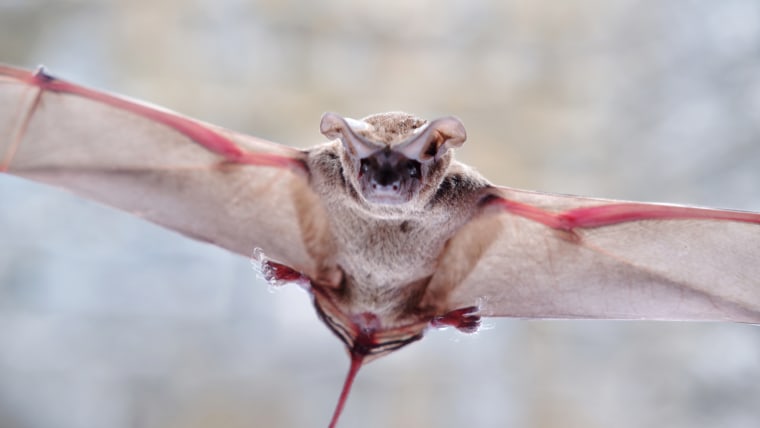A Massachusetts woman was bitten by nearly $21,000 in medical bills after a bat flew into her mouth during a freak incident while vacationing in Northern Arizona, the unlucky traveler said Friday.
Erica Kahn, now 33, had recently lost her job as a biomedical engineer when she traveled to the Glen Canyon National Recreation Area in last August, she told NBC News.
Kahn, whose woman-vs.-animal story was first reported Thursday by KFF News, was snapping pictures of the night sky when a bat approached and got caught in between her camera and face.
Then a part of the bat got into her mouth.
“It was kind of dark out and we were out on a cliff, so I was looking down and at my camera, I didn’t really see it coming,” she said Friday.
“When it got kind of tangled between my face and the camera, it was probably just like a few seconds. But it felt like a lot longer.”
While there are highly effective drugs for rabies, it can be fatal if not treated before symptoms are felt.
At the urging of her travel partner and father, a doctor, the symptom-less Kahn sought care for rabies — but only after jumping online to buy new medical insurance.
After Kahn lost her job, she declined to pay for her former employer’s insurance for $650 a month through COBRA, the federal continuation of health coverage law.
The unemployed Massachusetts woman figured she could roll the dice as a healthy woman in her early 30s or at worst, could hastily buy private health insurance in a pinch, Kahn said.
Kahn went online, bought a policy and then went to get rabies vaccinations and treatment in Arizona, Colorado and Massachusetts, believing she was in the clear.

Then the bills started pouring in, asking for a total of $20,749, because her policy had a 30-day waiting period before she could receive treatments covered by the plan, she said.
“I felt so powerless against these companies,” she said. “It should be a human right to have lifesaving care covered. In most other countries, like in Europe, you just go to the hospital, you get your rabies vaccines and you pay nothing.”
Sabrina Corlette, co-director of the Center on Health Insurance Reforms at Georgetown University, said most plans kick in on the first of the month after enrollment. It’s generally not instantaneous.
“The insurance companies — for good reason — don’t want people to wait to sign up for coverage until they are sick,” Corlette told KFF.
Kahn is now employed again and has health insurance, she’s burdened by the bills.
Kahn said looking back, she should have secured private health insurance as soon as she was laid off.
“I should have done COBRA, even though it was very expensive,” Kahn said. “But yeah, hindsight is 20/20.”
The near-$21,000 burden will probably lead to fewer vacations and a delay in having central air conditioning installed at her place, Kahn said.
She said she hopes others can learn from her misstep.
“It was my fault. I took the risk of not doing COBRA and that’s forever on me,” she said. “But if one person gets covered because they saw this story, then I would be happy about that.”
Source link



